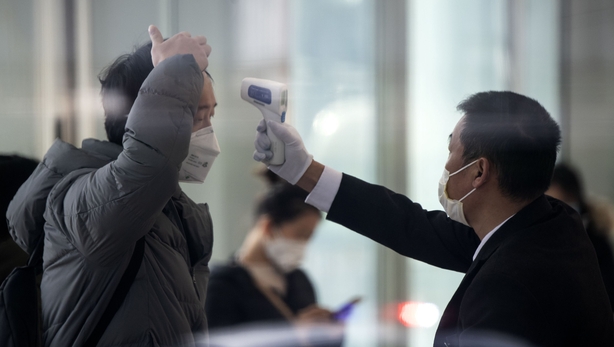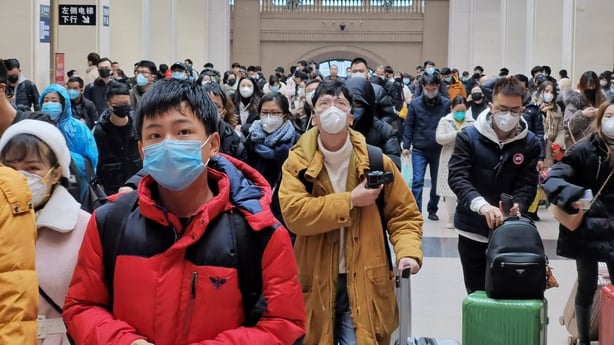Workers began trickling back to offices and factories around China today as the government eased some restrictions on working during a coronavirus epidemic that has killed more than 900 people.
The death toll of 97 on Sunday was the largest in a single day since the outbreak was detected in December and linked to a market selling animals in the Hubei provincial capital of Wuhan.
Stocks and oil fell while safe-haven gold rose as the death toll from the outbreak surpassed that of another coronavirus, which brought a global epidemic of Severe Acute RespiratorySyndrome (SARS) in 2002/2003, raising alarm bells about its severity.
A team of experts headed by the World Health Organization (WHO) was flying into Beijing todayto help assess the outbreak.
The epidemic has caused huge disruptions in China with usually teeming cities becoming virtual ghost towns during the past two weeks as authorities ordered virtual lockdowns, cancelled flights and closed factories and schools.
Authorities told businesses to add up to 10 extra days onto Lunar New Year holidays that had been due to finish at the end of January.
Even today, a large number of workplaces will remain closed and many white-collar workers were working from home.
On one of the usually busiest subway lines in Beijing,trains were largely empty. The few commuters seen during peak-hour morning traffic were all wearing masks.
Hubei, the province hit hardest by the outbreak, remains in virtual lockdown, with its train stations and airports shut and its roads sealed off.
Some restrictions on people entering and leaving residential compounds are in place in many cities across China, and schools in many regions will be shut until the end of February.
The virus has also spread to at least 27 countries and territories, according to a Reuters count based on official reports, infecting more than 330 people.

Two deaths have been reported outside mainland China - both of them Chinese nationals - one in Hong Kong and the other in the Philippines.
60 more cases have been found on a cruise ship docked off the Japanese port of Yokohama, media reported, taking the number of cases to 130 out of some 3,700 people on board.
Across mainland China, there were 3,062 new confirmed infections yesterday, bringing the total number to 40,171 ,according to the National Health Commission (NHC), with 908 dead.
"Markets will be sensitive to coronavirus news as factories and ports in China reopen. The extent to which that is achievable will indicate the level of ongoing disruption," ANZ economists wrote in a note.
The extended closure of factories in the world's second-largest economy has raised concerns for global supply chains.
China's central bank has taken a raft of steps to support the economy, including reducing interest rates and flushing the market with liquidity. From today, it will provide special funds for banks to re-lend to businesses combating the virus.
Taiwan's Foxconn has received Chinese government approval to resume production at a key plant in the north China city of Zhengzhou, a source with direct knowledge of the situation told Reuters.
Tesla, Daimler and Ford are among carmakers that have said that they will restart production at their factories today.
Gaming giant Tencent Holdings said it had asked staff to continue working from home until February 21.

Samsung Electronics resumed production at its home appliance factory in China today, while it continues to run its chip factory there, a spokeswoman said.
But it extended the suspension of work at a television factory to February 17.
Hyundai said its suppliers in China resumed production but volume was negligible.
Kia Motors is suspending production at all three Korean plants due to a shortage of parts, although one will resume production tomorrow.
Short-term rental company Airbnb said it was suspending its bookings in Beijing for check-ins to the end of the month.
The WHO declared the outbreak a global emergency on January 30, days after the Chinese central government imposed a lockdown on 60 million people in Hubei province.

